Photo: Daniel Mendoza/Recording Academy
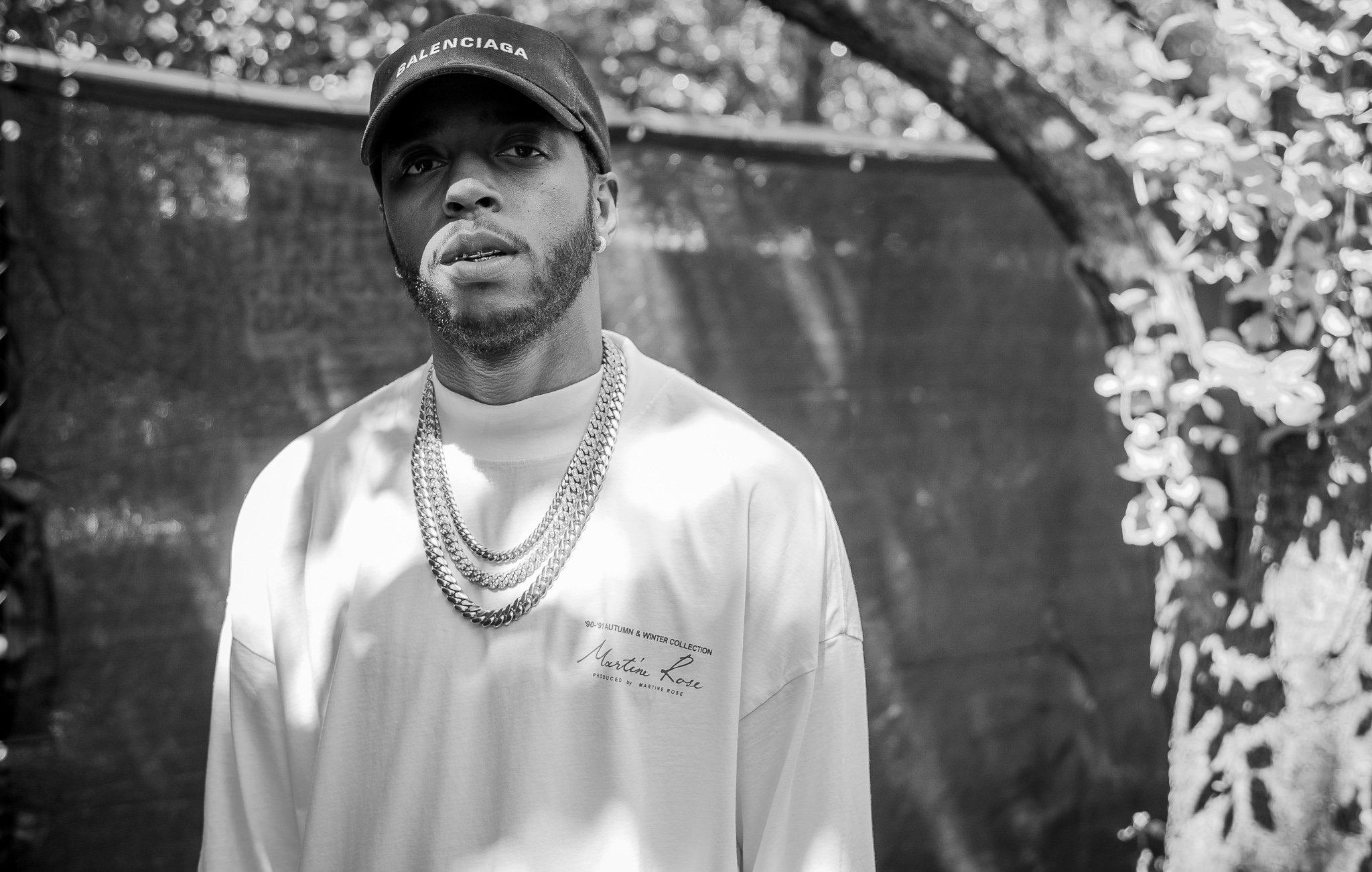
6LACK at Lolla 2019
news
6LACK On His New "Seasons" Video Featuring Khalid, Getting Back In The Studio & More
The Atlanta alt-R&B singer told us that pairing with his fellow GRAMMY nominee is like "two brothers working, it's super easy, super natural"
While On The Road at Lollapalooza 2019, the Recording Academy caught up with Atlanta alt-R&B artist 6LACK to talk about playing Lolla, recent collabs and when we can expect new music. We also learned more about his latest video for "Seasons" and how it felt to reunite with his fellow GRAMMY nominee Khalid.
Having originally linked up on 2018's "OTW," 6LACK revealed that reuniting with Khalid was like "two brothers working, it's super easy, super natural." He also said that the new, heartfelt video is a visual representation of seasons changing and focuses on capturing joyful moments.
"It's a video that isn't really focused too much on me and what I'm doing or what I'm wearing, or anything like that," he said. "It's more so about capturing moments that make me happy, that make me feel like seasons are changing, with other people involved."
<iframe width="620" height="349" src="https://www.youtube.com/embed/sP82GCicFgA" frameborder="0" allow="accelerometer; autoplay; encrypted-media; gyroscope; picture-in-picture" allowfullscreen></iframe>
He also talked about what he learned from working with J. Cole, another collaborator on his second studio album, East Atlanta Love Letter, as well as being ready to record new music again:
"I just got back in the mood to start recording, so I don't even know what to expect at all. I just know it's been a full year since I've made a full song of my own, and that's the longest I've ever gone without making music. But I had to spend time with my daughter and actually live for a second, and now I'm ready."
J.I.D. Talks Lollapalooza Debut, Working With J. Cole & Dreamville, New Music & More

Photo: Matt Jelonek/Getty Images
list
Ice Spice Is The Drill Queen On 'Y2K!': 5 Takeaways From Her Debut Album
The 10-track LP clocks in at just under 24 minutes, but it's packed with insanely quotable one-liners, star-studded collaborations, and bold statements.
Since Ice Spice first caught our attention two summers ago, she's been nothing short of a rap sensation. From viral hits like her breakout "Munch (Feelin' U)," to co-signs from Drake and Cardi B, to a Best New Artist nomination at the 2024 GRAMMYs, the Bronx native continues to build on her momentum — and now, she adds a debut album to her feats.
Poised to be one of the hottest drops of the summer, Y2K! expands on Ice Spice's nonchalant flow and showcases her versatility across 10 unabashedly fierce tracks. She dabbles in Jersey club on "Did It First," throws fiery lines on lead single "Think U the S— (Fart)," and follows the album's nostalgic title with an interpolation of an early '00s Sean Paul hit on "Gimmie a Light."
Y2K! also adds more star-studded features to Ice Spice's catalog, with Travis Scott, Gunna and Central Cee featuring on "Oh Shh...," "B— I'm Packin'," and "Did It First," respectively. At the helm is producer RiotUSA, Ice Spice's longtime friend-turned-collaborator who has had a hand in producing most of the rapper's music — proving that she's found her stride.
As you stream Ice Spice's new album, here are five key takeaways from her much-awaited debut, Y2K!.
She Doubles Down On Bronx Drill
Ice Spice is one of the few ladies holding down the New York drill scene on a mainstream level. She's particularly rooted in Bronx drill, a hip-hop subgenre known for its hard-hitting 808s, high-hats and synthesizers — and according to the sounds of Y2K!, it’s seemingly always going to be part of her artistry.
"It's always time to evolve and grow as an artist, so I'm not rushing to jump into another sound or rushing to do something different," Ice Spice told Apple Music of her tried-and-true musical style.
While Y2K! may not be as drill-driven as her debut EP Like…?, the album further hints that Ice isn't ready to retire the sound anytime soon. The subgenre is the dominant force across the album's 10 tracks, and most evident in "Did It First," "Gimmie a Light" and "BB Belt." Even so, she continues her knack for putting her own flair on drill, bringing elements of trap and electronic music into bops like "Oh Shhh…" and "Think U the S— (Fart)."
She Recruited Producers Old & New
Minus a few tunes, all of Ice Spice's songs start off with her signature "Stop playing with 'em, Riot" catchphrase — a direct nod to her right-hand man RiotUSA. Ice and Riot met while attending Purchase College in New York, and they've been making music together since 2021's "Bully Freestyle," which served as Ice's debut single. "As I was growing, she was growing, and we just kept it in-house and are growing together," Riot told Finals in a 2022 interview.
Riot produced every track on Like.. ? as well as "Barbie World," her GRAMMY-nominated Barbie soundtrack hit with Nicki Minaj. Their musical chemistry continues to shine on Y2K!, as Riot had a hand in each of the LP's 10 tracks.
In a surprising move, though, Ice doesn't just lean on Riot this time around. Synthetic, who worked on Lil Uzi Vert's GRAMMY-nominated "Just Wanna Rock," brings his Midas touch to "Think U the S—." Elsewhere, "B— I'm Packin'" is co-produced by Riot, Dj Heroin, and indie-pop duo Ojivolta, who earned a GRAMMY nomination in 2022 for their work on Kanye West's Donda. But even with others in the room, Riot's succinct-yet-boisterous beats paired with Ice's soft-spoken delivery once again prove to be the winning formula.
She Loves Her Y2K Culture
Named after Ice Spice's birthdate (January 1, 2000), her debut album celebrates all things Y2K, along with the music and colorful aesthetics that defined the exciting era. To drive home the album's throwback theme, Ice tapped iconic photographer David LaChapelle for the cover artwork, which features the emcee posing outside a graffiti-ridden subway station entrance. LaChapelle's vibrant, kitschy photoshoots of Mariah Carey, Lil' Kim, Britney Spears, and the Queen of Y2K Paris Hilton became synonymous with the turn of the millennium.
True to form, Y2K!'s penultimate song and second single "Gimmie a Light" borrows from Sean Paul's "Gimme the Light," which was virtually inescapable in 2002. "We really wanted to have a very authentic Y2K sample in there," Ice Spice said in a recent Apple Music Radio interview with Zane Lowe. Not only does the Sean Paul sample bring the nostalgia, but it displays Ice's willingness to adopt new sounds like dancehall on an otherwise drill-heavy LP.
Taking the Y2K vibes up another notch, album closer "TTYL," a reference to the acronym-based internet slang that ruled the AIM and texting culture of the early aughts. The song itself offers fans a peek insideIce's lavish and exhilarating lifestyle: "Five stars when I'm lunchin'/ Bad b—, so he munchin'/ Shoot a movie at Dunkin'/ I'm a brand, it's nothin.'"
She's A Certified Baddie
Whether she's flaunting her sex appeal in "B— I'm Packin'" or demanding potential suitors to sign NDAs in "Plenty Sun," Ice exudes confidence from start to finish on Y2K!.
On the fiery standout track "Popa," Ice demonstrates she's in a league of her own: "They ain't want me to win, I was chosen/ That b— talkin' s—, she get poked in/ Tell her drop her pin, we ain't bowlin'/ Make them b—hes sick, I got motion." And just a few songs later, she fully declares it with "BB Belt": "Everybody be knowin' my name (Like)/ Just want the money, I don't want the fame (Like)/ And I'm different, they ain't in my lane."
For Ice, "baddie" status goes beyond one's physical attributes; it's a mindset she sells with her sassy delivery and IDGAF attitude.
She's Deep In Her Bag
In album opener "Phat Butt," Ice boasts about rocking Dolce & Gabbana, popping champagne, and being a four-time GRAMMY nominee: "Never lucky, I been blessed/ Queen said I'm the princess/ Been gettin' them big checks in a big house/ Havin' rich sex," she asserts.
Further down the track list, Ice Spice firmly stands in her place as rap's newest queen. In "BB Belt," she raps, "I get money, b—, I am a millionaire/ Walk in the party, everybody gon' stare/ If I ain't the one, why the f— am I here, hm?"
Between trekking across the globe for her first headlining tour and lighting up the Empire State Building orange as part of her Y2K! album rollout, Ice Spice shows no signs of slowing down. And as "BB Belt" alludes, her deal with 10K Projects/Capitol Records (she owns her masters and publishing) is further proof that she's the one calling the shots in her career.
Whatever Ice decides to do next, Y2K! stands as a victory lap; it shows her prowess as drill's latest superstar, but also proves she has the confidence to tackle new sounds. As she rapped in 2023's "Bikini Bottom," "How can I lose if I'm already chose?" Judging by her debut album, Ice Spice is determined to keep living that mantra.
More Rap News

Ice Spice Is The Drill Queen On 'Y2K!': 5 Takeaways From Her Debut Album

Watch Young MC Win Best Rap Performance In 1990

On Rakim's 'G.O.D's Network (REB7RTH)' The MC Turned Producer Continues His Legacy With An All-Star Cast

5 Ways Mac Dre's Final Living Albums Shaped Bay Area Rap

Denzel Curry Returns To The Mischievous South: "I've Been Trying To Do This For The Longest"
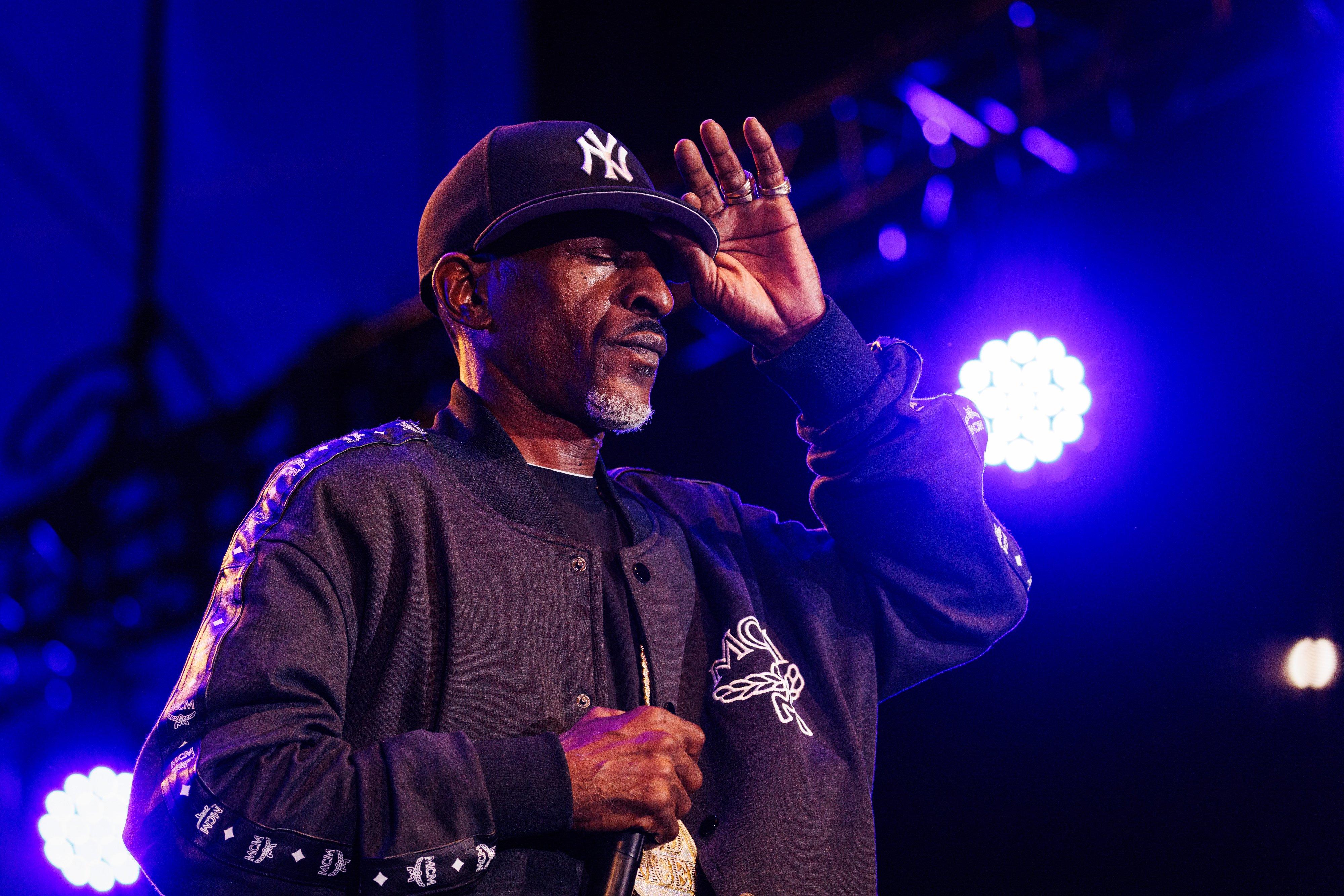
Photo: Richard Bord
feature
On Rakim's 'G.O.D's Network (REB7RTH)' The MC Turned Producer Continues His Legacy With An All-Star Cast
On his first project in 15 years, "God MC" Rakim produced seven songs and called on some of hip-hop's biggest names. The legend and his team detail his new album and working with Nipsey Hussle, DMX and Snoop Dogg.
Every album comes with a backstory, but not many come with two. Rakim's new project G.O.D's Network (REB7RTH), out July 26, came together in a few quick months, from signing a deal in February 2024 to completion in June. The process was spurred by one dedicated A&R person frantically combing through his network of rappers to get guest verses over beats produced by the God MC himself.
But to hear that A&R man, Matt "M80" Markoff, tell it, creating the seven-song project didn't take four months. It took four years.
"I've known [Rakim's longtime manager] Matt [Kemp] and Rakim since 2007," Markoff tells me when I get him on the phone in late June. "They're used to getting calls from me a couple of times a year just for, like, show referrals, verse referrals, things of that nature."
Back at the beginning of the pandemic, Markoff had been talking to the folks at Fat Beats, the venerable record store-turned-distributor that's a huge name in independent hip-hop. He mentioned Rakim's name to the company, and Fat Beats responded that they'd love a project from the God MC. The original pitch, Markoff remembers, was "a three or four song EP with some remixes."
Rakim quoted his price, Fat Beats agreed, and the project was underway, with the emcee meeting with producers to look for beats. But Rakim, who hasn't released a solo album since 2009's The Seventh Seal, is not one to be hurried.
"Ra was having [DJ] Premier and Pete Rock and Ninth Wonder and some of these people come to the studio," Markoff says. "Because of scheduling conflicts and stuff and, you know, normal course of life, it just wasn't right. The vibe wasn't there."
That's where Jazzy Jeff came into play. Rakim and the legendary DJ began working together and, per Markoff, it "just meshed." It seemed like, instead of a handful of songs, a full-length record was in the offing.
"As soon as they finish the first song, I walk into Fat Beats and say, ‘Hey, this is what we're doing now,'" the A&R man recalls. "Instead of Rakim with random producers, it's Rakim/Jazzy Jeff. That'll be huge."
Then…nothing.
A few years pass, and the Rakim and Jazzy Jeff project is still unfinished. (Rakim described its status as "We have a couple records already done.") Fat Beats, which was on the auction block (it was eventually sold in March 2024), wants its money back. Rakim obliges, and everyone seems set to forget about the whole thing.
Markoff, however, was not about to give up on working with the man he calls "my favorite emcee of all time."
The revamped album started its life as not an album at all. Instead, the original conception was a model Markoff had used before: licensing beats by people not typically thought of as producers. In this case, he'd be offering aspiring rappers the chance to get beats by arguably the most influential rapper of all time.
"He's taken people who are not necessarily known as producers and put together beat packages for them," manager Matt Kemp says of Markoff. "And then, one of the things he does is he goes out and he licenses those beats through a company that he has. If you're a European artist that wouldn't necessarily have access to things like that, you can get it."
So that, as of February of this year, was the (revamped) plan: have Rakim do six beats and one verse, and sell non-exclusive licenses, so that any rapper, anywhere in the world, who wants to use them in a song of their own could do so. This, indeed, was a vision that was followed through all the way to the finish line — you can see the end result released July 12, priced between $700-$1,050 depending on what you want to do with the beats and the rhyme, here.
But along the way to creating that package, things got significantly more complicated. As Rakim was making the beats, he found he really liked them. In some cases, he even wanted to rhyme on them himself.
"As the beats started coming together and Rakim was really in the studio and we started putting the rhymes onto them, we realized that it was bigger just than that [original vision]," Matt Kemp said.
The wheels started turning. Rakim, the God MC, as a producer? That would be a project worth sharing with the world, not just a few aspiring artists.
As it turns out, unbeknownst even to many Ra fans, the rapper has been making beats since the beginning. In fact, he produced — and played drums on — one of Eric B and Rakim's classic songs, 1992's "Juice (Know the Ledge)." So producing an entire project didn't seem like such a big stretch after all.
"I always was attached to making beats," Rakim explains to me. "But I got to the point where I'm confident with my production now. I got the chance to produce the album and jumped at the opportunity."
Rakim, as has been well documented over the years, comes from a musical family. His older brother Ronnie was a keyboard player of some note with his own claim on rap history, his other brother Stevie is also keyboardist who performed on some Eric B. and Rakim songs, and the rapper's aunt is the late R&B legend Ruth Brown. So when making beats, Ra will often play drums, bass, guitar, or piano. (He cops to enlisting one of his brothers if the keyboard part gets too complicated.)
He describes his production style this way: "You try to add on to the sample, and enhance certain sounds that you hear. Or you might just add a melody that you feel enhances the sample as well."
In addition to playing instruments on the project, Rakim also plays the turntable.
"I always knew how to DJ, and I like being able to enjoy the project from a different seat," he tells me. "I enjoyed putting the music together, coming up with the scratch patterns."
So with the musical side of the equation firmly in place, what about the vocals? Rakim was inspired to add verses on a few songs, and hooks on a few more.
"It's mostly a project that I was supposed to be producing," he explains. "In the midst of that, there's certain beats that I'm playing and I'm like, ‘I gotta rhyme on this one,' or, ‘I got a rhyme that fits this one perfectly.'"
The question was, what to write about? After a decade and a half without an album, the rapper had a lot to discuss, and needed to find new ways to say it.
For the project's lead single, "BE ILL," he got in plenty of internal rhymes. And the song's tempo allowed him to come up with different rhythms.
"When tracks are at that speed, I'm able to manipulate time and space to come up with different rhythms because I have so much time and space to deal with," he says. "It was one of them songs I loved rhyming to. Just having fun with words and phrases, and at the same time having so much on my mind to say."
"I'm trying to say a lot of things," Ra admits when discussing his writing on the album. "It's hard to just come back and say a verse when you've been gone so long. So I tried to be very specific and cautious with the words that I chose, and try to be entertaining at the same time. So it was a little nerve wracking."
Even with Rakim's vocal contributions (he ends up with either verses or hooks on six of the project's seven tracks), more was needed to complete the songs. That's where Markoff really got going.
"Literally, I didn't waste a single day," he remembers. "I was calling the artists in my network. I reached out to each artist one by one, and let each artist go through the folder [of beats] with me and make their picks."
Among the artists Markoff reached out to were several members of the Wu-Tang Clan. He has a long relationship with the crew, having worked with them on several projects including the well-regarded 2005 album Wu-Tang Meet the Indie Culture.
Markoff recalls the exact moment when he lined up Wu member Masta Killa for his appearance on what became "BE ILL."
"I was at the first ever Wu-Tang Clan residency in Vegas, and I told Masta Killa, ‘Dude, I just got these Rakim beats 10 minutes ago.' I played 10 seconds of the second beat, which was the beat for ‘BE ILL.' And he was like, ‘That's the one.'"
A different Wu-Tang show was responsible for one of the album's other notable guest appearances, Cash Money stalwart B.G. The two met at the concert, and the Louisiana rapper was in the studio "48 hours later," Markoff recalls.
For a handful of artists he had good long-term relationships with, Markoff let them choose which of Rakim's beats they wanted to rap over. In addition to Masta Killa, he names Chino XL, Hus Kingpin, 38 Spesh, and TriState as being on that short list. After that, he says, it was all his decision.
The end result is a list of some of the top rappers in his Rolodex: Kool G. Rap, Method Man, Kurupt, Canibus, KXNG Crooked, Skyzoo, Joell Ortiz, and many more — including an outro from Snoop Dogg. But one of the most surprising things on the tracklist is that a number of the guests aren't alive anymore.
Nipsey Hussle, Prodigy, DMX, and Fred the Godson have verses on the record. All of them were people Markoff had worked with in some capacity over the course of his career. He says that all of the verses were "in my stash or under my ownership." So when he was looking for material for the Rakim project, they were a perfect fit.
The Nipsey Hussle contribution in particular stood out so much that the entire song, "Love Is the Message," was designed around it. The project's engineer placed Neighborhood Nip's verse first, and everyone else listened to that when recording.
"We kind of glorified who he is, and came up with the title ‘Love Is the Message' to put everything in perspective," Rakim tells me. "So everybody vibed off of that and everything that we implemented had to have that feel or had to be in that direction."
One thing Rakim noticed as he was listening to the contributions coming in? Many of them were paying tribute to him. In particular, B.G. says in his verse that he's "on a song with the greatest."
"To hear things like that from my peers is a beautiful thing," says Rakim, who also admits to tearing up when hearing Snoop Dogg praise him on the outro of one of the album's songs. "Hip-hop is one of the more, I guess, feisty genres. It's hard to get that love from your peers. So it's a real blessing to hear it from people like that, to hear what they think of you and to say that on records. A lot of people might think that of you, but would never say it on a record."
For Markoff, B.G.'s tribute was particularly meaningful because of the rapper's history. He began his career in a duo, and later a quartet, with another rapper sometimes considered the greatest of all time, Lil Wayne.
"For B.G. to have that history, but acknowledge Rakim — I was speechless," Markoff confides. "It was really cool to see. It's like, ‘I'm not just going to say my partner, my friend, my confidant Lil Wayne's the best because we grew up together.'"
Finally, after all the guest verses came in, the project was ready. Seven songs, entirely produced by Rakim, with raps by him and a broad cross-section of artists. The question, then: what exactly is this project? An album? An EP? Rakim's big comeback? A teaser for his eventual full-length return?
To Markoff, none of these labels are important. He's not concerned about fans being disappointed that a project under Rakim's name features only a handful of the rapper's verses.
"The fan is going to look at it however they want to look at it," he says. "The negative people will stay negative. It wouldn't matter if it was the greatest album of all time. The positive people that are so grateful that I stepped up to the plate to help bring new Rakim music to the world are going to love it."
After all, he continues, "The whole point originally when we started making it was letting his peers shine on Rakim beats. The fact that this project morphed into something that Rakim literally is on 95% of, I couldn't have asked for more of a blessing."
So Matt Markoff, the boy who fell in love with Rakim's music at 12 is now, three decades later, putting out music from his hero.
"Dream fulfilled," he says right before we hang up. "Now I gotta figure out what I'm going to do for the rest of my life."
Latest News & Exclusive Videos

2024 Paris Olympics Opening Ceremony: Watch Celine Dion, Lady Gaga, Gojira & More Perform

Ice Spice Is The Drill Queen On 'Y2K!': 5 Takeaways From Her Debut Album

New Music Friday: Listen To New Songs From Halsey, MGK And Jelly Roll, XG & More

Watch Young MC Win Best Rap Performance In 1990

The Red Clay Strays Offer A New Kind Of Religion With 'Made By These Moments'
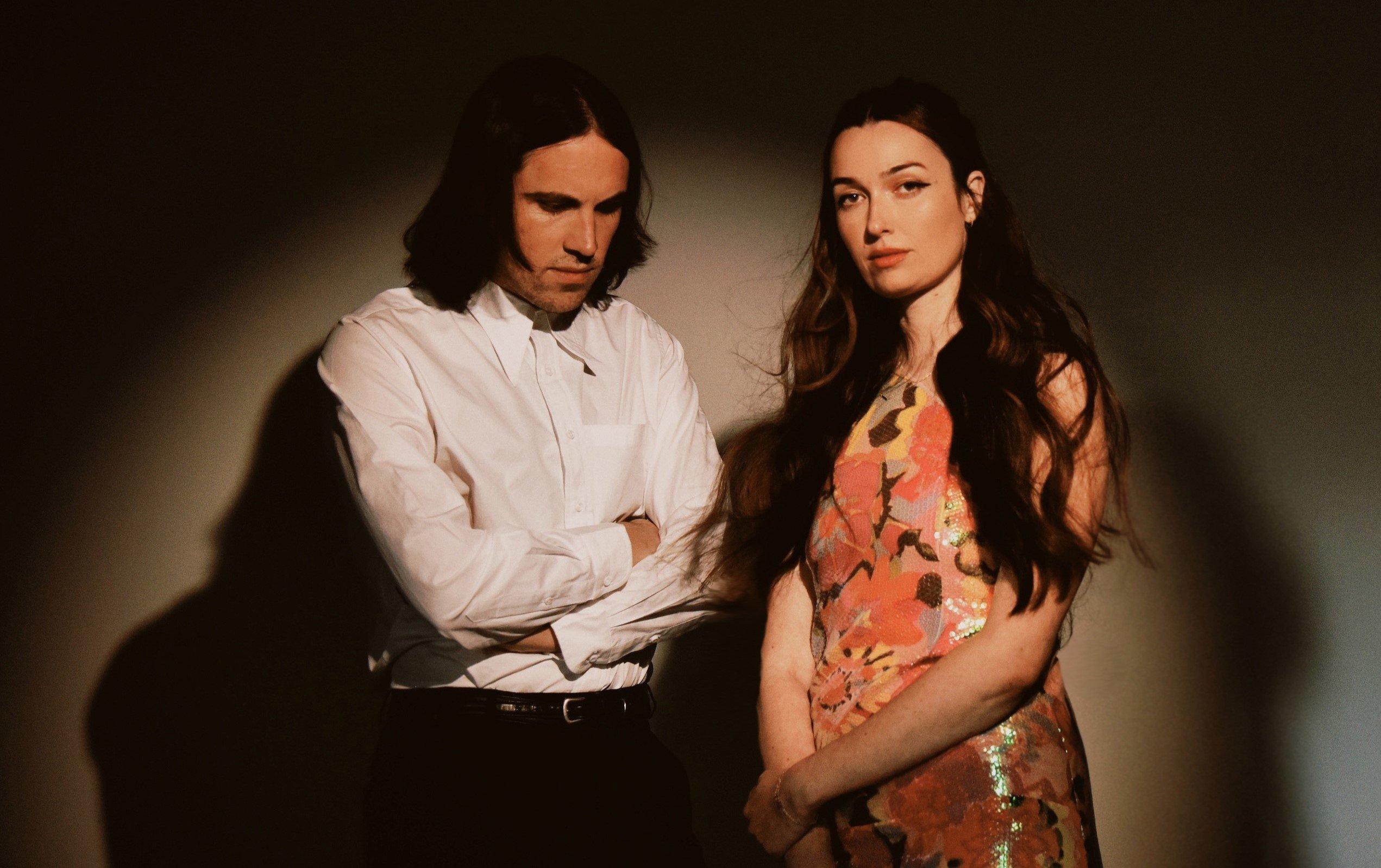
Photo: Shervin Lainez
interview
Cults' Evolution: Madeline Follin & Brian Oblivion Discuss Their Upcoming Album 'To The Ghosts'
Out July 26, Cults' new album reflects their 15-year journey as artists. Ahead of their Lollapalooza performance and U.S. tour, the duo discuss how they've pushed their sound forward.
Over the past 15 years, Cults have captivated audiences with their atmospheric, layered compositions that pack a pop-friendly punch. Now, on the brink of releasing their fifth album, To The Ghosts, on July 26, Madeline Follin and Brian Oblivion reflect on their journey and new creative freedom.
While their previous albums required the duo to stick to deadlines precariously organized between tours, the pandemic provided new circumstances. Freed of distractions and obligations, Follin and Oblivion traveled to Los Angeles in 2022 to join up with their longtime producer Shane Stoneback (Vampire Weekend, Sleigh Bells) to craft an album that looks back on their past while pushing their sound ahead.
"We don't have the sales pitch for the album down yet, but there's no other band that sounds like us," says Oblivion. "We're digging into our thing, and if you're into anything we've done before, you'll love this one."
Adds Follin, "We're like no other."
The album title is addressed to the ghosts of both Oblivion and Follin's past selves. As Oblivion explains, their four prior albums were time capsules that reflected the period in which each album was written and recorded. This release is something different.
To The Ghosts is a personal landmark for Follin, particularly. In 2020, upon the release of Cults' fourth album Host, she admitted that she'd been too shy to bring her own songwriting and demos to the table for the band's first three albums. It was Stoneback's encouragement that altered the creative process for the duo, resulting in their most collaborative album to date, and significantly more reliance upon live instrumentals in the studio.
"We spent a month in an AirBnB then a week in the studio with Shane," explains Follin.
"It was a mad dash to replace all the midi instruments with real ones, so we were running around playing vibraphones, organs, and guitars and all these things we'd recorded in demos and laying it all back down in one week."
It may have been a mad rush at the end, but over the years the duo have refined their formula for making albums. They're no longer the giddy art students and lovers making DIY music with no plans for world domination.
In 2010, Follin and Oblivion founded Cults and released their debut EP "Cults 7", followed by their debut self-titled album in 2011, which was similarly lauded. By the time their sophomore album "Static" arrived in 2013, the pair had freshly broken up and the themes of being creatively and emotionally stagnated resonated in dramatic, spacious orchestral compositions. They followed up with "Offering" in 2017, which was the first of the duo's albums to lean into optimism and a sense of embracing a more pop-friendly path.
That optimistic pop thread is picked up once more in "Crybaby", the first of 10 tracks that kicks off the new album. It launches with a lush, reverb-rich guitar hook and shuddering church bells, then shifts into a calypso beat and Follin's dreamy ode to escaping the modern malaise ("dry your eyes / turn off the screen"). Like the other catchy, bittersweet synth-pop numbers on To The Ghosts, "Crybaby" wraps up in close to three minutes.
The lengthy outliers are "You're In Love With Yourself" and the closing track "Hung The Moon," which runs over five minutes. Ending an album with an epic power ballad is their signature style and "Hung The Moon" bathes in drama, love, loss and redemption. "In a storytelling way, that's the only ending that makes sense to us, a melancholy resolution," Oblivion says.
To The Ghosts captures everything fans adore about Cults and they'll have ample opportunity to catch them performing live this year. The duo are set to return to Lollapalooza opening for Vampire Weekend on Aug. 4, followed by their own headlining U.S. tour the same month.
Ahead of their intensive touring schedule, the duo joined GRAMMY.com on a group video chat from their respective homes in New York’s East Village one evening, to discuss their upcoming release.
This interview has been edited for brevity and clarity.
You began working on this album during the pandemic. Tell me where you wrote and recorded material, and whether you did that together or separately?
Madeline Follin: We were writing and recording in Brian's spare room. Can you see him?
Brian Oblivion: This tiny room! [directs the camera around a room not much bigger than 7 x 10 feet].
Follin: I sat on that couch right there, and we spent a lot of time in that little room [laughs]. For the most part we were together for the entire thing.
**Madeline, you revealed that before making your fourth album Host, you were too shy to show your own music to Brian and producer Shane Stoneback. What broke that barrier down for you to fully participate in the creative process?**
It was really hard to get it out of me. I had really strong imposter syndrome. Even though Brian was just starting out, he had taken a few recording classes in college, so he knew a lot more of the recording lingo and ways of communicating technically. I didn't know, so I felt so nervous to even communicate what I wanted. Shane helped with that a lot in terms of translating what I wanted into the language of studio speak. Shane is unlike any other producer we've worked with. He heard me out.
Tell me about working with Shane Stoneback in terms of what you came into the conversation with, and what he contributed to shaping this album.
Follin: We thought that we were not going to work with Shane again because he'd largely gotten out of the business. During [the] pandemic he switched careers and began working in the movie business. So, we started working with a few other people, we were feeling it out, and it just wasn't working. We reached out to [Shane], and he randomly happened to have 30 days off and said if we can finish it in 30 days, we can do it. We said, "we're coming out tomorrow."
What were the creative decisions you made in the earliest stages, and how much did you change your mind or allow outside ideas in as you were working on this album?
Oblivion: It took us a really long time. We definitely wrote over 100 songs. I put it all on an iTunes playlist and it was over 6 hours of music. This time we got a lot of confidence from some of our older songs being popular with young people. We thought, maybe the time has come around where we can do exactly what we do, and that's kinda 'new' again. Once we went through all the permutations and landed on "Crybaby," which was the first song on the record, we just thought "this just feels like us, so let's lean into what makes us unique." The messing around period was just trying out new tricks and trying to expand our possibilities.
John Congleton has a real knack for guitar sounds and finding a rawness to live instruments. How did he come to mix this album?
Oblivion: I've been a fan of John's going back to Xiu Xiu and my high school days. He's a master of distortion, him and Dave Fridmann, that's their thing. They can make things really fuzzy and interesting, but also fit it all in the speakers in a way that's like a weird magic trick. We have kind of a vintage sound, and he gets that but he's also smart at highlighting things that are new. He mixed our last record too and from the first conversation, in which he said he thinks like a musician and wants to do something strange, we knew we wanted him.
Follin: We'd mixed with other people before but when we got a mix back from John, he was bringing out parts of the song that we hadn't even recalled leaving in there. He makes our songs sound new to us again. We have a lot of trust and respect in him, and we were trying for so long to get our schedules lined up.
Oblivion: We work on our music for so long that by the time it's ready for the mix, we really want to hear something new. It's refreshing for us that John hears something new in us.
Tell me about "Crybaby," the first single. What were you going for in terms of the music, the mood and the message?
Follin: We'd been working on that song as part of the 100 songs that didn't make it. Brian started working on that song and I had never heard anything like that come out of his computer before, and I was shocked. It's funny because people say it's so "Cults sounding", but I thought it was unlike anything we'd done before. It's got a '60s vibe, an island vibe, to me and I thought we needed to zone in on it.
Oblivion: That was at the point where we decided "let's see if we can still make Cults songs that hark back to the earliest record." I love the lyrics, they're simple and there's no hidden meaning, which is great. A lot of the music that we love and that inspired the start of our band, is really obvious but also really weird in terms of lyrics. "Crybaby" is a fun, whacky diss track.
Let's talk about what inspires you musically.
Oblivion: What gets me excited is spending a lot of time sharpening my Spotify algorithm, so every Monday I get a collection of weirdo emotional love songs about heartbreak, these obscure, catchy B-sides, and whenever I find a song like that, I'm so inspired. Something that has kitsch, gravitas, and a bit of humour, that John waters, David Lynch combination lights me up.
Follin: Right now, I'm really into a lot of Fontaines D.C. I felt a 'Cults' vibe from them even though they probably have no idea who we are. It's been a while since I've put on a song, and then I want to put it on again right away.
"Left My Keys" is an anthem for growing up. Tell me about your experience growing up in this band.
Oblivion: What makes this record different is that historically, we'd do all the music together over a span of two years, then Maddy would squirrel away to take a month or two to write all the lyrics, and that made the records very reflective of that moment, that time. For this record, because we had a protracted work schedule with nothing else to do, we took the time to slow down and look back. "Left My Keys'' is about being a teenager, and "Crybaby" is about things that happened a long time ago. Growing up is being comfortable enough to address your own past and realizing everything turned out okay so far. It's the first album where we're looking backwards and processing stuff from the last 15 years and before.
This album feels brighter than 'Host.' What happened between 'Host' and 'To the Ghosts' that explains the transition?
Oblivion: There's a lot of stuff we got out of our system. Host and Offering were both dark records, to me. It's wild to see that young people have picked up on "Gilded Lily" and that was such a crazy, cathartic song for us, so now it is crazy and cathartic for them. Most of my favorite bands are dark, sad bands, but that's not the totality of who we are. Being able to explore both sides of who we are was refreshing for us.
Follin: Personally, we were both feeling a lot better in our lives. We worked through a lot of anxiety, and because of the pandemic there was less partying, clubs, and bars. We had time to get healthier.
Oblivion: In a lot of ways our band is defined by our limitations. We have made music for 15 years, just the two of us with the same producer. But every time we make something new and interesting and all the things we think of as roadblocks help to provide a framework for what we do.
You released 'Host B-Sides & Remixes' in 2022, two years after 'Host.' Are there outtakes, or planned remixes, that are planned for this album too?
Follin: Definitely. 100 percent, we will be having something, but I'm not saying.
Oblivion: It's been really fun with the last few albums to put out songs that showed what would have happened if we went in a different direction. Sharing that part of the process with listeners has been fun.
You have a huge schedule of touring. Tell me about the plans and how you mentally and physically endure all the travel and performances. Does it get easier the more you do it?
Follin: No. Every single night, even if we're in the middle of nowhere, whether there's 15 people or 1000, I almost have a heart attack before walking on stage each night. You're crammed in a box with 7 people every night, there's a lot of emotions…
Oblivion: …and something is always breaking at soundcheck, it's like arghhhh! It's really hard, but when we put out Host and we didn't get to tour for two years, we missed that connection. The feeling of sharing your music with people allows us to move past it and get into something new. It's a big part of our personal growth and experience. We love touring.
Follin: In normal daily life, we hang out together. We hang out on weekends. It's not a forced thing. It feels so good to meet fans every single night, too, and hearing stories of how you affected somebody's life.
Most of the tracks on this album fall at around the three minute mark, and many end quite abruptly without fading out or dwindling down. Was that a deliberate strategy, and then why did "Hung The Moon" require that extended time as the finale?
Oblivion: It's verse-chorus-verse-chorus-bridge-chorus and you're done in three minutes!
Follin: Brian is very concerned about time, and I don't think it matters. I like shorter, he likes longer. We're compromising.
Oblivion: "Hung The Moon" is the big epic ballad that ends the record. We have had one on every record, it always ends with a big power ballad. In a storytelling way, that's the only ending that makes sense to us, a melancholy resolution. I love that song because it starts off as a sweet love song then it gets tense and spooky towards the end, but the lyrics stay really loving. It's that transition between the rush of an initial relationship and then the long game, where it's sweet and delicate, but it's also real life, so you're afraid that you'll lose things and you're trying to hold on to that original thing. So, the album ends on a bittersweet note.
Lollapalooza News
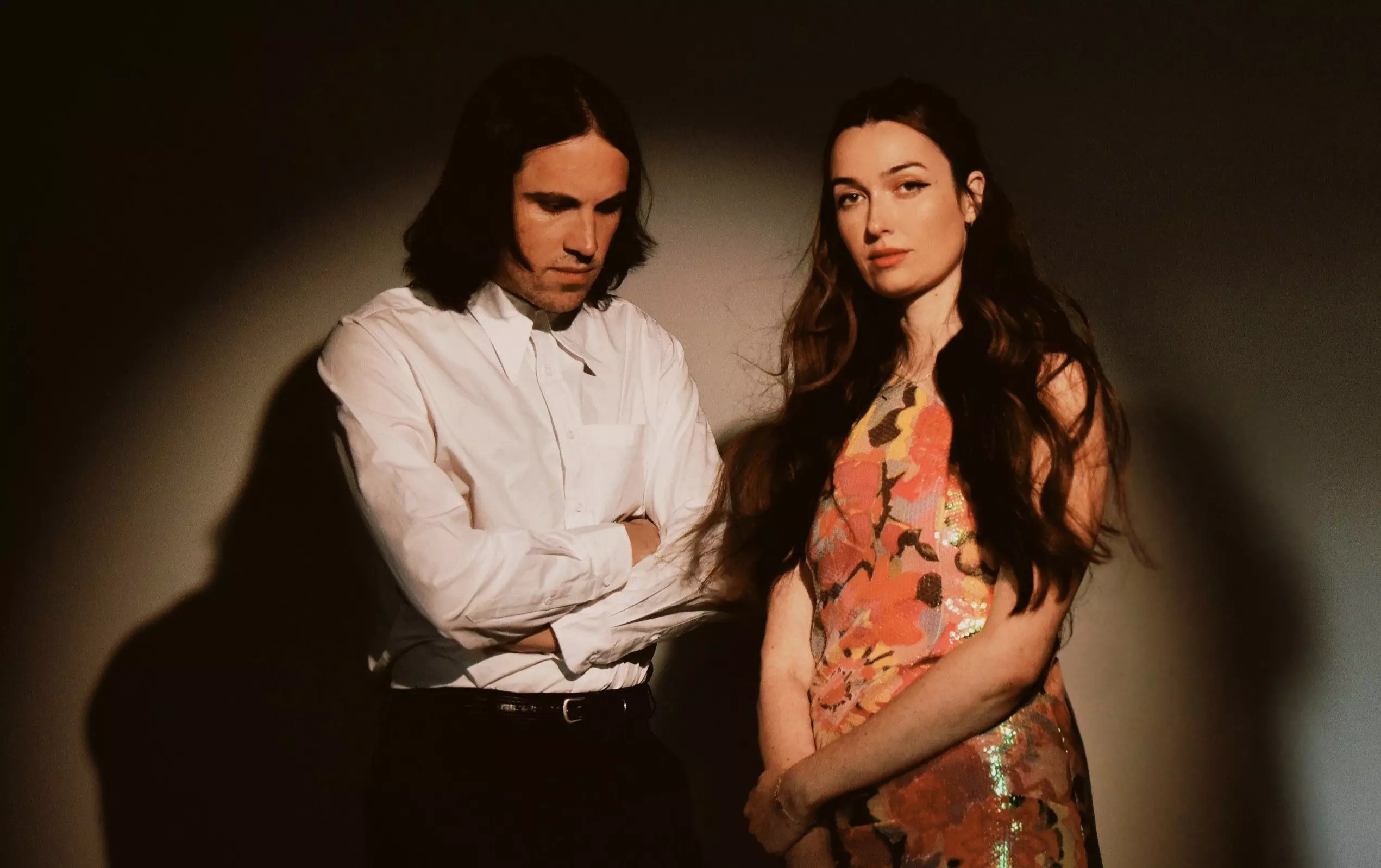
Cults' Evolution: Madeline Follin & Brian Oblivion Discuss Their Upcoming Album 'To The Ghosts'
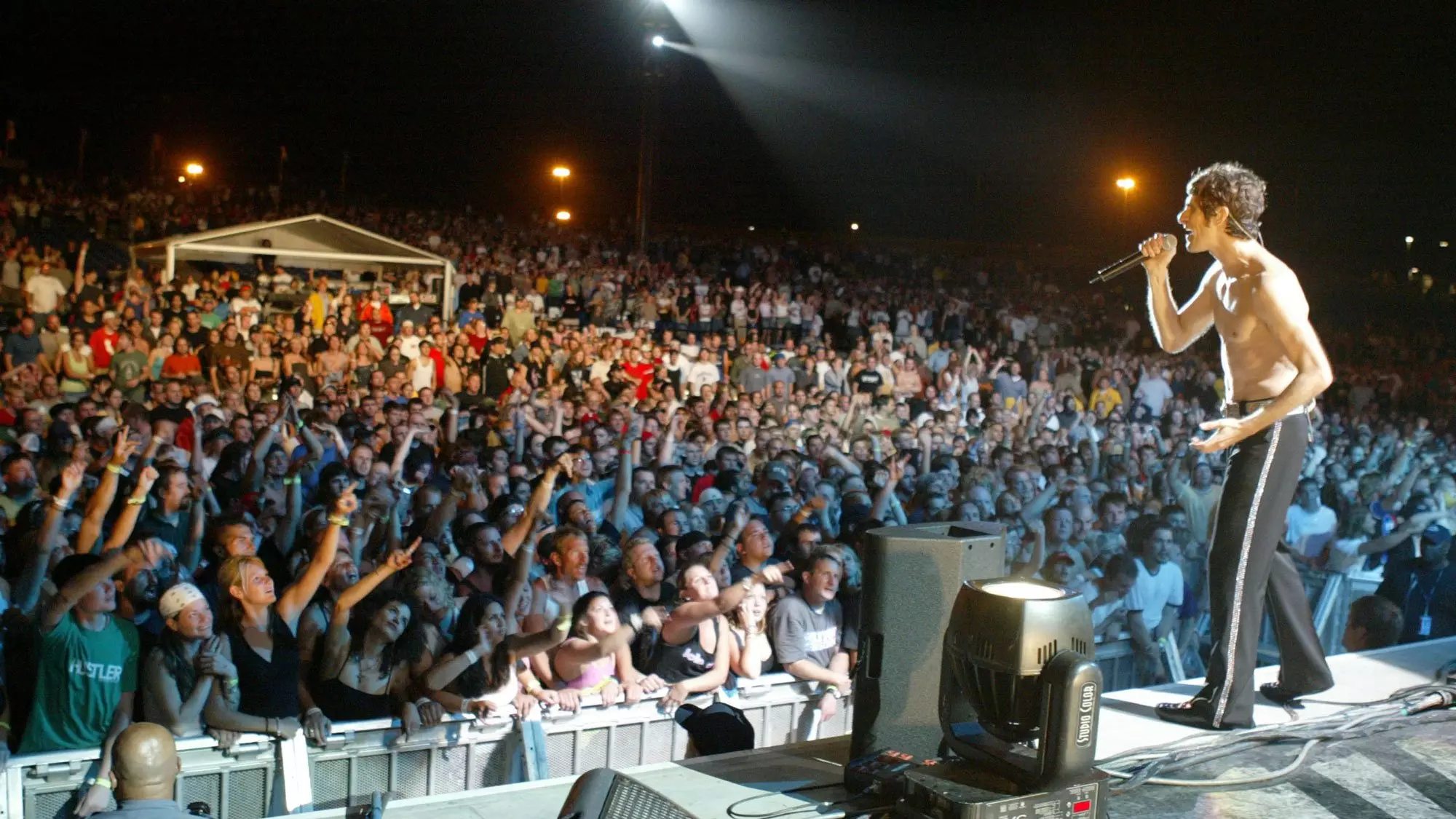
'Lolla: The Story of Lollapalooza' Recounts How An Alt Rock Fest Laid The Blueprint For Bonnaroo & More
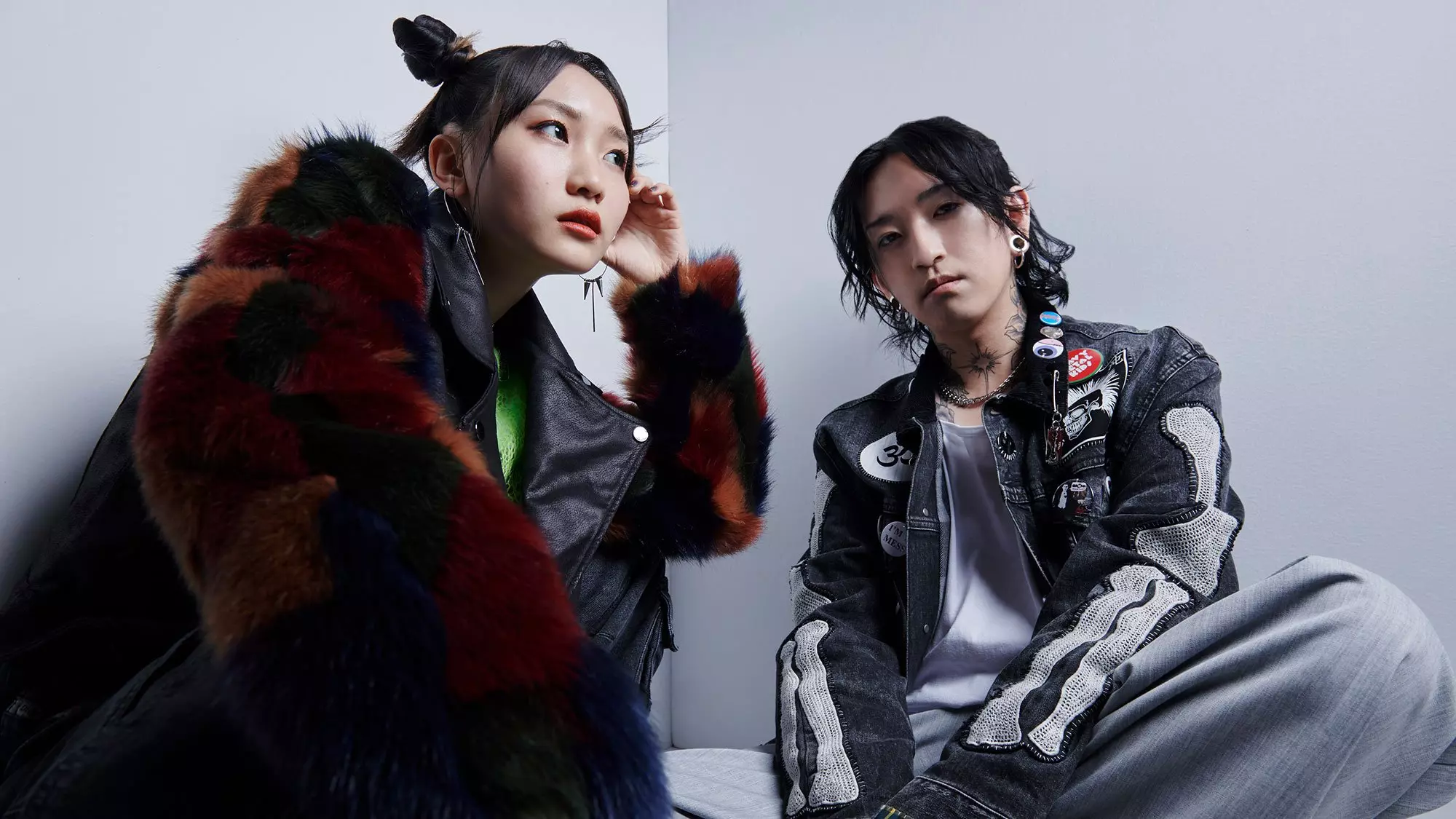
From Tokyo To Coachella: YOASOBI's Journey To Validate J-Pop And Vocaloid As Art Forms
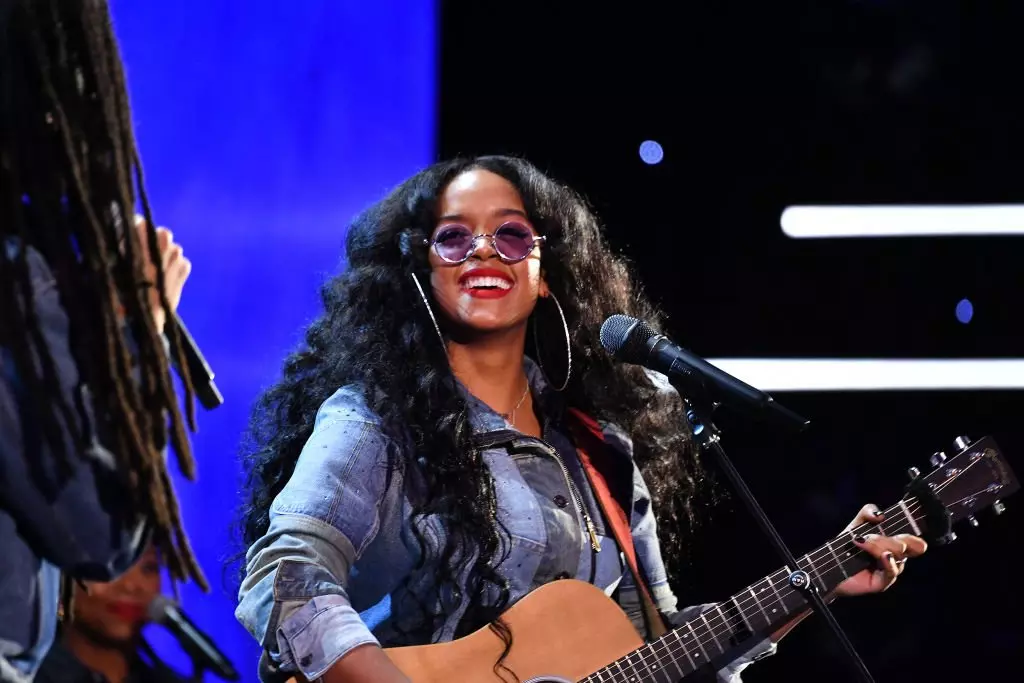
Lollapalooza Announces Lolla2020 Virtual Fest Celebration In Place Of Cancelled In-Person Event
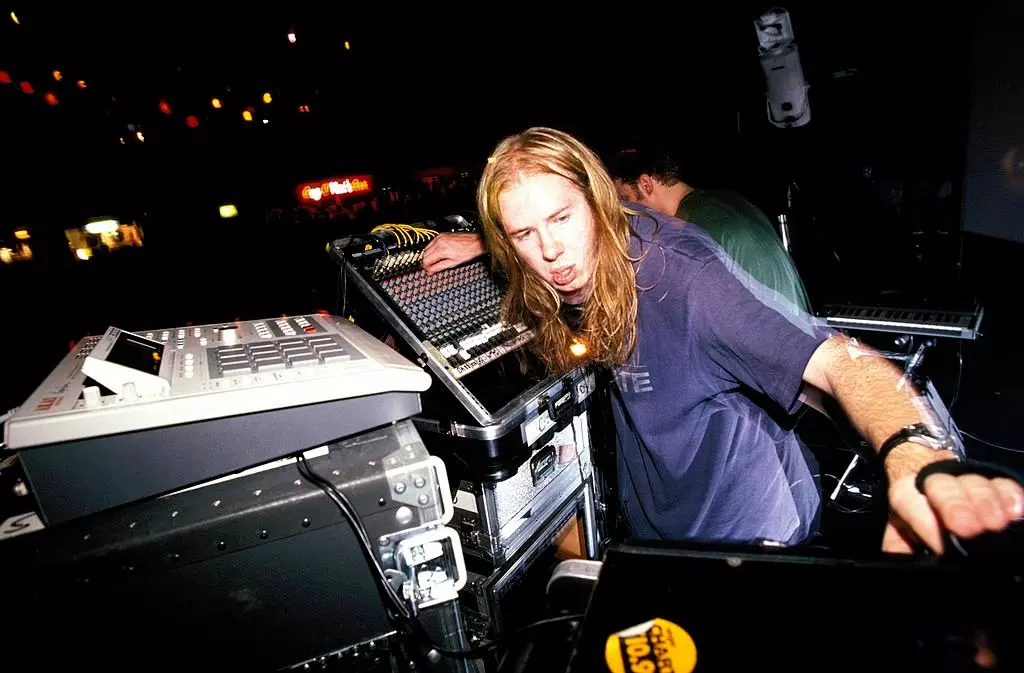
How 1995 Became The Year Dance Music Albums Came Of Age
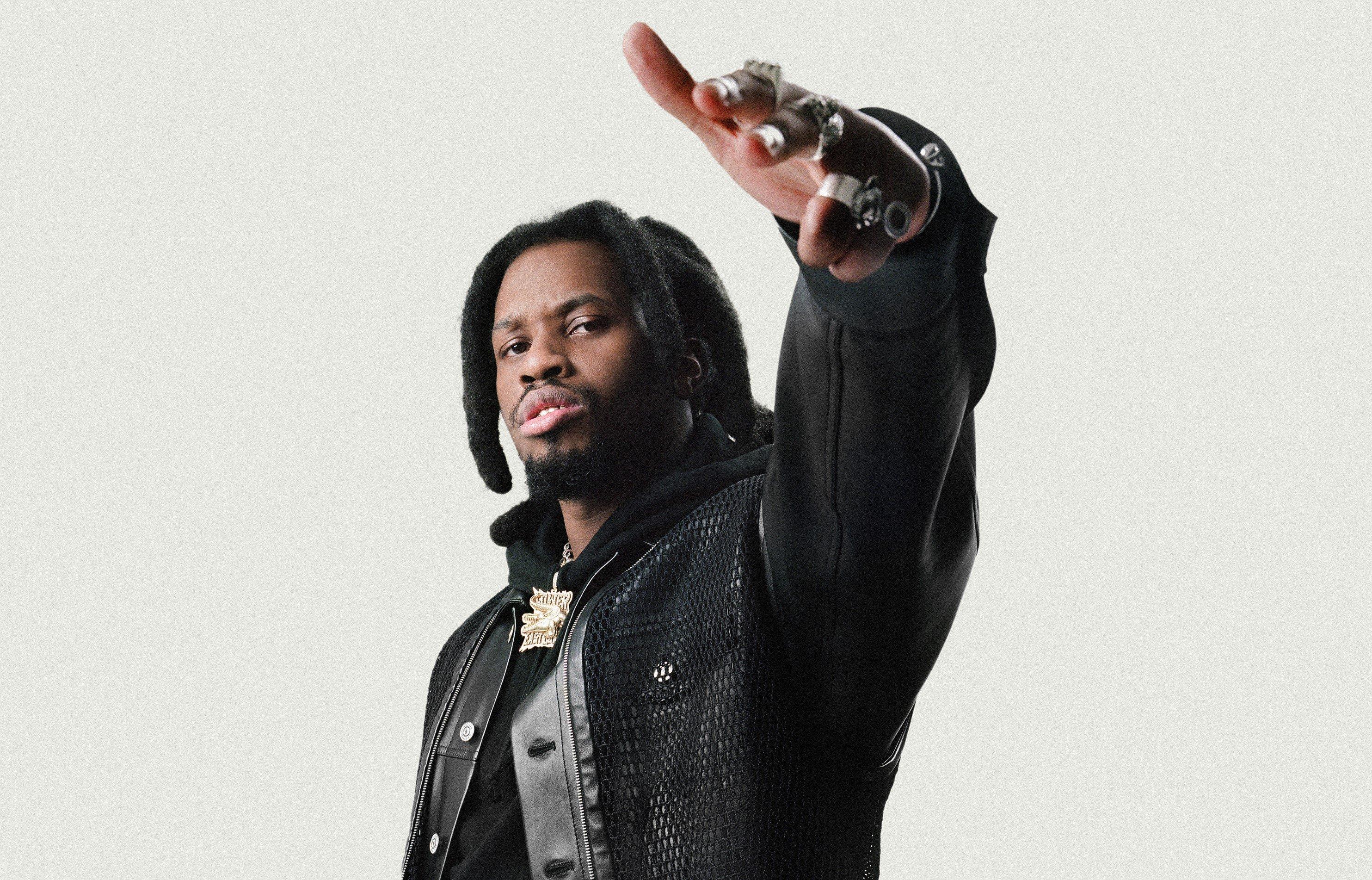
Photo: Giovanni Mourin
interview
Denzel Curry Returns To The Mischievous South: "I've Been Trying To Do This For The Longest"
Over a decade after he released 'King of the Mischievous South Vol. 1,' Denzel Curry is back with 'Vol. 2.' The Miami rapper details his love of Southern hip-hop, working on multiple projects, and the importance of staying real.
Denzel Curry isn’t typically one for repetition. His recent run of critically acclaimed projects have all contrasted in concept and musicality.
The Miami Gardens native has cascaded through boom-bap, synth-soaked trap metal, and cloud rap throughout his catalog. But on his upcoming project, King of the Mischievous South Vol. 2, Curry returns to the muddied, subwoofer-thudding soundscape that he captured on the first installment back in 2012.
Curry was just 16 when he released King of the Mischievous South Vol. 1 Underground Tape 1996]. "I was a kid, man," Curry tells GRAMMY.com. "I was just trying to emulate my favorite rappers at the time who really represented the South. That was pretty much what I was on at the time – the Soulja Slims, the No Limits, but mostly Three 6 Mafia. And then I just put Miami culture on top of that."
Curry first explored the rough-cut "phonk" of Southern acts like DJ Screw and Pimp C as a teenager. His first mixtape, King Remembered Underground Tape 1991-1995, caught the attention of then-rising rapper and producer SpaceGhostPurrp. He shared Curry’s project on his social media accounts, making him an official member of South Florida’s Raider Klan.
Read more: A Guide To Southern Hip-Hop: Definitive Releases, Artists & Subgenres From The Dirty South
The now-defunct group is well behind Curry, who’s ascended from the infancy of his early SoundCloud days to mainstream success. But the rapid-fire delivery and hazy, rough-cut sounds of early Southern rap are still soaked into his musical fibers.
Reignited by the same musical heroes that led to Vol. 1, Curry is comfortable in old sonic form. Vol. 2's lead singles "Hot One" (feat. A$AP Ferg and TiaCorine) and "Black Flag Freestyle" with That Mexican OT fully capture the sharp-edged sound that stretched from Port Arthur, Texas to the Carolinas.
The rapper wanted to go back to the KOTMS series nearly a decade ago, but other projects and outside ventures derailed his return. "I tried to do this thing multiple times," Curry tells GRAMMY.com. "I remember revisiting a [social media post] from 2015 that was like, ‘KOTMS Vol. 2055 is now going to be called Imperial.’ I’ve been trying to do this for the longest."
A string of bouncy, syrup-pouring, and playalistic Southern trap songs led him back to familiar grounds. The new 15-song capsule features Juicy J, 2 Chainz, Project Pat, That Mexican OT, Maxo Kream, and others inspired by the same pioneers that fall below the Mason-Dixon line.
GRAMMY.com sat down with Curry before the release of King of the Mischievous South Vol. 2 on July 19. The "Ultimate" rapper revealed his "Big Ultra" persona, his ability to crank out hits from his bedroom, and his recent discoveries being "outside."
This interview has been lightly edited for clarity and length.
What inspired you to revisit the 'King of the Mischievous South' series?
I was making two projects at once, and there was a through-line from the second half of the project. The second one I was working on kind of just manifested itself into what it is today, 12 years later. And it’s called King of the Mischievous South Vol. 2 because it has the same sonics as the first one.
You mentioned Three 6 Mafia being a big inspiration for Vol. 1. But what about Vol. 2?
The first KOTMS was obviously Three 6 Mafia, and then Lord Infamous was really the person I looked up to, God rest his soul. I get my rap style from him — the rapid flows and stuff like that. You can even hear it on "Walkin’" and "Clout Cobain." But since I’m from Miami, I’m talking about stuff that predominantly happens in Miami. And I’m influenced by Soulja Slim, Master P, DJ Screw, UGK, Trina, Trick Daddy, and Rick Ross.
How did you juggle the two different projects at once?
When I wasn’t working on one project, I was working on the other one. Sometimes I would be working on the same two projects on the same day. I was like, If this one won’t see the light of day until next year, this one has to hold fans over. And the one that was supposed to hold fans over ended up having a crazy through-line.
What were the studio sessions like?
When it came down to the production, I was just making these songs on the fly. A couple came out of Ultraground sessions, but the majority of the songs were made in my bed — just how it was with the first one. "Hot One" was made in my house downstairs, and "Hit The Floor" was made in a random room in an AirBnb. And I think the rest of the songs were made in an actual studio.
I was just flowing, doing my thing, and figuring things out. I was working on one project, and when I wasn’t getting called back to the studio, I was working on another one on the side. The grind didn’t stop.
Was there an element or feature that you really wanted to explore?
I just knew I wanted certain rappers to be featured on [project]. When I was working on "Set It," I originally wanted PlayThatBoiZay. But he didn’t get the record done or whatever the case may be. So, I sent it to Maxo Kream, and he ended up just doing it. And when I made "Wish List," I got Armani White on it. Me and him came off of doing "Goated," so getting that record done was really simple. He pulled up to the studio and he said, "This is tight," and then jumped on the record.
Some stuff didn’t make the cut because we couldn’t get certain people. But the majority of the stuff that made the cut, we were like, "Yes, we did that." Then having people like Ski Mask the Slump God, 2 Chainz, Project Pat, and Juicy J — all these guys played a role. I’m getting people from the South, whether they’re from Texas, Florida, or the Carolinas. And even people outside of the South, like A$AP Ferg and Armani White, they’re all influenced by the same artists.
Learn more: A Guide To Texas Hip-Hop: Definitive Releases, Artists & Events
Your persona on the album, "Big Ultra." Break that down for me.
This is how the name came about — my boy’s nickname is Mr. Don’t Fold. It’s kind of a play on "Mr. Don’t Play," so we came up with "Big Ultra" because I’m doing "ultraground" stuff. It wasn’t on some superpower s—, it’s just me, pretty much. It’s how I wanted to be presented on this tape. It’s just me at the end of the day, it’s no persona.
You’ve been in the rap game for a while. Do you consider yourself a veteran?
I think I’m mostly in a formation period because my best years haven’t even happened yet. I feel like I’m just getting my reps in, preparing myself for my 30s. You know, going through the bulls—, having good times, having bad times.
By the time I get to 30, 35, and 40 — God willing — I could have a fruitful career and not be backtracked by dumb s—. I see myself as someone with a lot to offer because I’m still young.
Do you care about garnering more fame or acclaim? Or is there no need for it?
All my projects are critically acclaimed. The main thing is staying good at what I do. That comes with a lot of effort, a lot of studying, and a lot of work. I take pride in my job and I have fun making music.
I think the hardest part is putting myself out there and being visible. I’m starting to understand that’s what I had to do. I got asked the same question five times in a row about when my album was dropping. I’ve been saying July 19 for the longest. Like, people really haven’t been paying attention? C’mon, bro.
What do you feel is the next step?
I’m just trying to be more visible where the younger generation is at. Most people know me for "Ultimate," "Clout Cobain," or the [XXL Freshman Class] Cypher if I’m being totally real with you. But in due time, everybody has blessings in certain parts of their career. And I’ve been blessed to have a career this long.
All I have to do is just deliver, be real with myself, and do what I have to do. I got to lean into being outside. I didn’t know who messed with me or who liked my stuff until I started going outside and talking to people. You never know who rocks with you until you're outside.
As far as the music and experience, where does the album rank for you?
I didn’t think about where I’d rank this. We had a whole decade of producing great records, and people look forward to the album experience more than the single when it comes to me. This is what it is, and I just want people to enjoy it. It’s not something to put too much effort or thought into. It’s something you can bump into the club, or you could go to a show and turn up to it. That’s where I’m at with it.
Are there any other sounds or genres you want to explore?
It’s going to happen when it’s supposed to happen naturally. But I do want to explore pop and R&B a year from now. I want people to be able to sing my songs and stuff like that.
Latest Rap News & Music

Ice Spice Is The Drill Queen On 'Y2K!': 5 Takeaways From Her Debut Album

Watch Young MC Win Best Rap Performance In 1990

On Rakim's 'G.O.D's Network (REB7RTH)' The MC Turned Producer Continues His Legacy With An All-Star Cast

5 Ways Mac Dre's Final Living Albums Shaped Bay Area Rap

Denzel Curry Returns To The Mischievous South: "I've Been Trying To Do This For The Longest"
